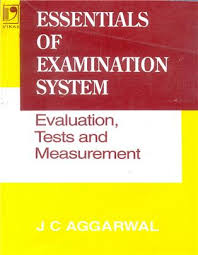Taxation in the Nigerian economy is a significant system that helps in the generation and redistribution of revenue to provide public services and improve the economy. Because of how important this is, the government enacted laws that govern and regulate taxation in the different sector of the economy in Nigeria. This article serves to give an overview of tax laws in Nigeria.
The major laws regulating taxation in Nigeria shall be briefly discussed below.
- Company Income Tax Act (CITA)- The Company Income Tax Act (CITA), Cap C21, LFN 2004 is the principal law that governs the taxation of companies in Nigeria. CIT is a tax imposed on the profit of a company from all its sources and it is also imposed on foreign companies operating a business in Nigeria. Section 1 of the Act provides for the establishment and constitution of the Board whose operational arm shall be called the Federal Inland Revenue Service, while Section 3 provides that the powers and duties of the board concerning companies include the collection of tax and accounting for all amounts collected.
Section 9 of the Act provides that tax for each year of assessment shall be payable at the rate specified upon the profits of any company accruing in, derived from, brought into, or received in Nigeria in respect of any trade, dividends, rent, or premium, source of annual profits or any amount of profits or gains arising from acquisition and disposal of short-term money instruments.
The rate of tax is between 20% to 30% of the total profit earned by the company in the accounting year ending preceding assessment. Some profits are exempted from CIT provided they are not derived from the trade or business activities carried out by the company. Every company is required to pay provisional tax not later than three (3) months from the beginning of each year of assessment which is an amount equal to the tax paid in the previous year of assessment. This is a payment on account of the year’s income tax assessment.
Section 24 provides for the deductions allowed by the Act, that to ascertain the profits or loss of any company of ay period from any source chargeable with tax, there shall be deducted all expenses for that period by that company wholly, exclusively, necessarily and reasonably incurred in the production of those profits including but not limited to any sum payable by way of interest on any money borrowed and employed as capital in acquiring the profits.
The company income tax is charged at the rate of 30% for companies that have more than N100 Million Naira turnover, 20% for companies with a turnover between N25 Million Naira and N100 Million. For small companies in the manufacturing and export sector of the economy, the taxable profit imposed is on such company is 20%, while the company with less than 25% are exempted from taxation.
- Capital Gains Tax Act- The governing legislation of the Capital Gains Tax is the Capital Gains Tax Act 1990. The capital gain tax is 10% of the company gains realized upon the disposal of chargeable assets or exchange of certain kinds of interests as provided by Section 2 of the Act. The most common capital gains tax payable by companies includes but not limited to the sale of stocks, bonds, precious metals, real estate, disposal of assets, and property investments as provided by Section 6 of the Act. Capital gains tax accrues yearly.
Section 26 of the Act provides for exemptions and reliefs.
The exempted gains not chargeable are:
- Gains of ecclesiastical, charitable or educational institutions, statutory and diplomatic bodies.
- Gains made upon disposal of business assets where proceeds are spent in acquiring new business assets.
- In circumstances where trustees and nominees transfer assets to beneficiaries, they are not considered to be disposing of the assets and so the transaction does not attract capital gains tax.
Section 11 provides for the computation of the tax payable, gains chargeable to tax is the difference between the consideration accruing to a person on the disposal of assets and the sum excluded from that consideration and there shall be added to that sum the amount of the value of any expenditure allowable to such person on such disposal.
- Petroleum Profit Tax Act (PPTA)- Petroleum Profit Tax Act 2004 (as amended) governs taxes that are imposed on the income of companies in the petroleum operations (upstream) sector of the economy. The Act regulates the financial operations of oil companies comprising of those in crude oil production, petroleum marketing, and also servicing companies involved in the survey, drilling, and data collection.
Section 2 of the Act defines petroleum operations as “petroleum operations is the winning of, obtaining and transportation of petroleum or chargeable oil in Nigeria by or on behalf of a company for its own account by any drilling, extracting or other like operations or process, not including refining at a refinery, in the course of a business carried on by the company engaged in such operations and all operations incidental thereto and any sale or any disposal of chargeable oil by or on behalf of the company”.
All profits generated by companies engaged in such operations are chargeable to tax under Section 8 of the PPTA, which provides that “there shall be levied upon the profits of each accounting period of any company engaged in petroleum operations during that period a tax charged, assessed and payable in accordance with the provisions of the Act.”
Under Section 9, the profit of an accounting period is the aggregate of the proceeds of the sale of chargeable oil sold by the company in that period, the value of chargeable oil disposed of by the company in that period, and any income of the company that arises from one or more of its petroleum operations.
The petroleum tax is currently charged at 85% except for companies under the Production Sharing Contract (PSC), which is 50%.
- Personal Income Tax Act- The Personal Income Tax Act 2011 (as amended) governs tax charged on the income of individuals, families, body of individuals, and trustees. Section 1 of the Act provides that the tax is an obligation, paid to the State Inland Revenue Service where the individual resides.
Section 3 of the Act provides that tax shall be payable for each year of assessment on the aggregate amounts each of which is the income of every taxable person, for the year, from a source inside or outside Nigeria, including without restricting the generality of the foregoing-
- Gain or profit from any trade, business, profession or vocation, for whatever period as long as trade, business, profession or vocation have been carried on or exercised;
- Any salary, wages, fee, allowance or other gain or profit from compensations, bonuses, premiums, benefits or other perquisites allowed, given or granted by any person to any temporary or permanent employee other than so much of any sums as or expenses incurred by him in the performance of his duties, and from which it is not intended that the employee should make any profit or gain;
- Gain or profit including any premium arising from a right granted to any other person for the use or occupation of any property;
- Dividend, interest, or discount;
- Any pension, charge, or annuity;
- Any profit or other payment not falling within paragraph (a) to (e).
Section 19 of the Act provides for the income exempted from paying Personal Income Tax in Nigeria. These are the income of persons or class of persons in pursuance of-
- Any treaty, convention, or agreement between the Federal Government of Nigeria and any other country or any other arrangement with or decisions of an international organization of which the Federal Government is a member or;
- An arrangement in that behalf subsisting between the Government of the Federation and Government of each State.
Section 41 of the Act provides that all taxable persons are required without notice or demand to file a return of their income in the prescribed form and containing specific information about their income and taxes with the tax authority in their state of residence. The return is expected to be filed by individuals including those that are self-employed and filed not later than the 31st of January each year.
Section 81 of the Act provides the tax is deducted from the salary or wages of the employee by the employer and further remitted to the appropriate tax authority. The payment is made on the 10th day of every month while the deadline for remittance is the 31st of January of the succeeding year.
The current chargeable income rate across many states is stipulated in the table below;
- Stamp Duties Act- the Stamp Duties Act LFN 2004 regulates taxes imposed on instruments and the rate of tax to be paid is dependent on the type of instrument and value of the transaction as provided by Section 3 of the Act.
Section 4 of the Act provides that the Federal Government shall be the only competent authority to impose, charge and collect duties on instruments if such instrument relates to matters executed between a company and an individual, group, or body of individuals, while the State Government shall collect duties on instrument between individuals, at a rate agreed with the Federal Government.
The Tax payable is as follows:
- Value Added Tax Act- the Value Added Tax Act 2004 regulates taxes imposed on goods and services sold to the public as provided by Section 2 of the Act. The current VAT rate payable is 7.5% following the amendment of the Value Added Tax Act by the Finance Act 2020.
The First Schedule of the Act states the goods and services that are exempted from paying this tax. These are; all medical and pharmaceutical products; non-oil exports, commercial aircraft, and spare part imports; baby products; certain humanitarian initiatives; machinery and equipment used in the solid minerals sector; exports, agricultural equipment, and commercial vehicles; basic food items; postal; residential rents; medical and pharmaceutical supplies; education and related materials and books and educational materials.
- Withholding Tax- The Companies Income Tax Act and the Personal Income Tax Act provides for withholding of tax from payments due to companies or individuals whether resident in Nigeria or not, that provides goods and services to individuals or companies in Nigeria. The period for filing withholding tax is on or before 21 days after the duty to deduct arose for deductions from companies. It is an advance payment of income tax.
Withholding tax is charged at the rate of five per cent (5%) or ten per cent (10%) depending o the type of payment or nature of the transaction and also whether the beneficiary of the payment is an individual or a corporation.
For non-resident companies, a reduced withholding tax rate of 7.5% applies to the non-resident company where Nigeria has a double treaty with the recipient country and the date for filing this tax return is the 21st of every succeeding month.
Taxable items under this category of tax are;
| Types of Payments | Rates for Individuals | Rates for Companies |
| Directors fees | 10% | 10% |
| Consultancy and professional services | 10% | 5% |
| Dividends, interest, and Rents | 10% | 10% |
| Building and Construction | 5% | 5% |
| Contracts other than sales in the ordinary course of business | 5% | 5% |
| Management service | 10% | 5% |
| Technical service | 10% | 5% |
| Commission | 10% | 5% |
| Royalties | 10% | 5% |
- Custom and Excise Duty Act- The Customs and Excise Management Act LFN 2004 imposes a custom duty on specified imported goods and also restricts the movement of certain goods in and out of Nigeria. It is collected by the Nigerian Customs Service. Any company involved in importation operations are liable to pay the tax charge ranging from 5% to 30%, depending on the goods imported.
- Employee Compensation Act- the Employee Compensation Act 2010 imposes obligations to employers in both the private and public sector to deduct 1% from the monthly salary of its employees and remit it to an Employee Compensation Fund. It is a form of insurance for the company’s employees in event of death, injury, disease, or disability of the employee arising in course of employment as provided by Section 1 of the Act.
The Nigerian Social Insurance Trust Fund Board (NSITF) under Section 2 of the Act has the power to implement the fund. The Scheme is targeted at protecting private-sector employees from financial difficulties in the event of death since most employers do not have such provisions in their employment policies.
- Education Tax Act 2004- This Act regulates taxes imposed on every Nigerian resident company at the tax rate of 2% of all assessable profit for each year of assessment as provided by Section 1 of the Act. It is payable by the company within sixty (60) days of an assessment notice from FIRS.
- Industrial Training Fund (ITF) Act- The Industrial Training Act, 2011 establishes the Industrial Training Fund in Section 1 of the Act to promote the acquisition of relevant skills in industry or commerce to generate a pool of indigenous manpower to satisfy the needs of the economy as stated in Section 2 of the Act.
Section 6 of the Act provides that every employer having twenty-five or more employees in his establishment shall in respect of each calendar year contribute one (1%) per cent of the amount of its annual payroll to the Fund not later than the 1st of April of every year.
The IDTF Act further imposes a duty on employers to provide training for their indigenous staff to improve their job-related skills. It also provides that the Fund’s Council may make a refund of up to 50% of the amount paid by an employer where it is satisfied that its training program is adequate as provided by Section 4 of the Act.
Failure to make contributions within the stipulated period in a calendar year attracts a penalty of five per cent (5%) of the amount unpaid for each month or part of a month after the date on which payments should have been made as provided in Section 9.
Conclusion
Taxation is one of the most important sources of government revenue in Nigeria to meet its statutory obligations of ensuring the economic development in Nigeria and its importance cannot be measured. It is mandatory for every individual and company to comply with the applicable tax laws and regulations.










Reviews
There are no reviews yet.